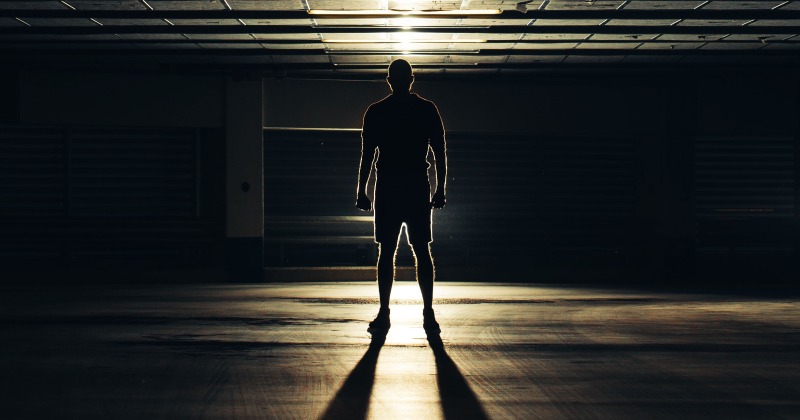From the Blog
Writings on Well-Being Dr. Rick Hanson

Stand up to Bullies
Bullying at all scales causes much suffering. What can we do? Recognize bullying and its enablers. Protect yourself, strengthen alliances with others, and stand up and speak up as best you can.
Get these articles delivered directly to your inbox every week.
"*" indicates required fields
The Effect of Relationships on the Evolving Human Brain
Your brain is the product of 3.5 billion years of intense evolutionary pressure, including 2.7 million years as tool-using hominids and over 100,000 years as homo sapiens. Human DNA is about 98-99% identical to chimpanzee DNA. But that crucial 1-2% difference is...
What is the Best Time of Day to Meditate?
What is the Best Time of Day to Meditate? In all the studies (and reviews of studies) I’ve seen on meditation, I’ve never seen anything scientific about best time of day to meditate. Maybe it exists, but I’ve never heard of it. From the standpoint of a long-time...
Brain Facts
Did you know? Neurons typically fire 5 – 50 times a second, with millions and even billions of them pulsing in harmony with each other many times a second; the electrical currents of that pulsing are revealed as brain waves in an EEG. In the half second it takes you...
Intention of Harmlessness
This is a broad aim of not causing pain, loss, or destruction to any living thing. At a minimum, this is a sweeping resolution to avoid any whit of harm to another human being. The implications are far-reaching, since most of us participate daily in activities whose...
Right Intention
Of course, the first question regarding intention is, for what? All the great wisdom traditions of the world, and all the great moral philosophers, have grappled with this question. What should we want? There are many ways to approach this question. Some try to answer...
Developing a “Buddha Brain” Through Gratitude
What role does gratitude play in developing a “buddha brain” and why? A ”buddha brain” is one that knows how to be deeply happy, loving, and wise. We develop ourselves in this way by cultivating wholesome qualities and uprooting unwholesome ones. In a sense, we plant...
Wholesome Intentions – The Neurology of Intention
Our intentions arise in the brain, are represented in the brain, and are pursued in the brain. Where else? Therefore, a basic understanding of how intentions work in the brain – and thus in your mind – is a very useful thing to have. The Executive Functions The brain...
How to Change Your Brain
In this video, I explain how mindfulness meditation can strengthen our brains and help us focus our attention. This video was taken at the Greater Good Science Center in UC Berkeley as part of the Science of a Meaningful Life Series. Take a look and let me know what...
Wholesome Intentions
These statements about reality, about the way things really are, are central to Buddhism, and you can test them for yourself: Everything happens because of preceding causes. Everything, both inside our minds and outside in the world. Those causes lead to results that...
Free Hardwiring Happiness Reading Guide Now Available!
I've created a reading guide for my book, Hardwiring Happiness, to take you through the concepts and details of each chapter, offering more opportunities to practice, reflect and apply the teachings to your every day life. The reading guide is a helpful resource for...
Key Points of Awareness – Part II
Visit Part I of this blog post here. Concentration Concentration has two central factors: applying attention to an object and sustaining it there, like an ice skater plants her foot (applying) and then glides along (sustaining). When you practice formal concentration,...
Taking in the Good
Resources for Happiness, Love, and Wisdom
Developing An Inner Protector
How do I develop an inner protector? Not being able to find an inner protector is a real fact of the inner of world of many people. Developing one is a matter of committed practice toward one’s own well-being, which will gradually change the brain. Some steps along...
When Good Is Stronger Than Bad
How do you practice taking in the good and what effects does your practice have on your life?
Overcoming the Negativity Bias
You were quoted in a short post about negativity bias in which you stated, “The brain is like Velcro for negative experiences and Teflon for positives ones.” Can you explain this in more detail? As the brain evolved, it was critically important to learn from negative...
Key Points of Awareness – Part I
What is awareness, and why is it good for us?
The Fight or Flight Response
"Is the “fight or flight” response the functional part of the primitive/reptile brain or the emotional brain?" These distinctions about the brain – fight or flight response, primitive/reptile brain, emotional brain – are used a lot these days, but they’re inherently...
Find the Good News
We need to recognize genuinely bad news so we can protect ourselves and others. The root cause of suffering and harm is ignorance, illusion, not seeing things as they actually are. See the facts and live in the light, we feel freer, at ease, unthreatened, confident, overflowing, loved, and loving.
We Walk Again and Again
“As a single footstep will not make a path on the earth, so a single thought will not make a pathway in the mind. To make a deep physical path, we walk again and again. To make a deep mental path, we must think over and over the kind of thoughts we wish to dominate...
The Mind, the Brain, and God – Part III
In Part I and Part II of this blog series, we discussed the meaning of the words: mind; brain and God, and looked at the interdependence between the mind and the brain. In this last part of the discussion we'll examine the neural correlates and morality and summarize...
The Mind, the Brain and God – Part II
In the last blog post we discussed the meaning of the words mind, brain and God and saw how the mind and the brain are interdependent. In this segment we'll go into the popular arguments for and against God and further into the link between the mind and the brain....
